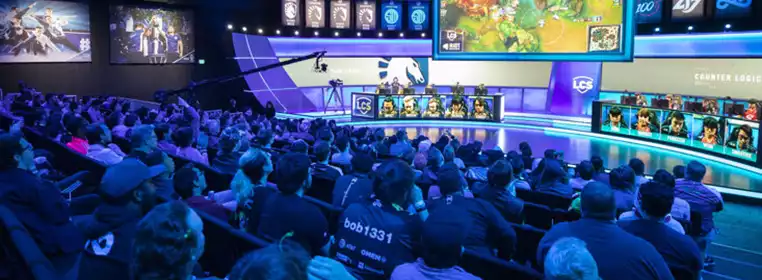What Third-Party Servers Could Do For North American League Of Legends

Third-party matchmaking services are nothing new to competitive video games or esports in general. Faceit and E-Sports Entertainment Association Leagues have been running since the early 2000s for titles such as Counter-Strike: Global Offensive (CS:GO) and Rainbow Six: Siege. These services are the backbone for early talent scouting for organisations and high-level practice for professional-level players outside of regular scrimmages.
But, competing through these websites has not caught on in League of Legends. Third-party online leagues and tournaments could potentially solve a few problems that some North American professionals and fans point to as reasons for the region's decline in recent years.
A detractor for Solo Queue and Ranked in the region is the servers overall ping for professional players and level of play at the highest ends of the ladder. While a third-party service cannot solve latency issues, the main servers for the region are located in Chicago, Illinois, and LCS players compete 2,000 miles away - the level of play is solvable. Services like Facit and ESEA bring a new dimension to competitive matchmaking that introduce different metrics and anti-cheat software to the queues.
While anti-cheat is not so much of a problem for the Riot Games title, unlike some of the other games on the services, the increased level of play could substantially improve the region. Pros and industry figures have complained in the past about the poor practice that comes from playing on the competitive ladder. The region’s player base is not as big or diverse as others, and lacks the hunger for improvement that permeate in regions with robust amateur leagues.
Third-party servers solve some of these problems by creating a more dense population of competitive players that are also searching for high-level competition. They essentially lift the barrier of entry beyond switching to Ranked Queue in the game’s client. If these services take off within North American League of Legends, they could also turn into revenue streams for high-level players and a starting point for amateur leagues in the community.
- Read More - A Take As Old As Time - A Dive Into NA LoL
Creating A Robust Online Amateur Scene
In other popular Faceit and ESEA titles, like Counter-Strike, there are paid options for their services like the Faceit Pro League. A subscription model that players pay for that increases the level of play and also adds in prizes for ladder placements and access to online and LAN tournaments with prize pools.
In Counter-Strike, this has allowed for smaller European regions to develop, and showcase their talent, without as many amateur teams and organisations as other bigger regions. This same principle could be applied to the North American server.
Currently, players with professional aspirations in the region have few options to get noticed by professional teams and organisations. There is, with the help of Faceit starting in 2018, the Riot sanctioned Scouting Grounds circuit that invites some of the highest players on the ladder to showcase their talent on LAN - but that’s about it.
There are a few amateur tournaments and leagues that North American players could find a team to compete in. Some LCS teams like 100 Thieves and TSM have amateur rosters that compete in the tournaments, but they are still dwarfed by the number of events and teams in China, Europe, and Korea.
If an FPL style server was created, the North American League of Legends community might have to toss out its complaint of poor talent scouting and even lack of high-level practice for its poor level of professional play.

 Click to enlarge
Click to enlargeProfessional Practice
While adding more barriers for entry can create a higher level of competition for the average competitive player, providing the best players in the server with optimal practice in a pick-up environment is also a top priority for the region.
In a recent interview with Travis Gafford, Golden Guardian’s coach Nicholas "Inero" Smith talked about the LCS in-house server. A server in which LCS players would face off against other LCS calibre players in a low-ping environment. The in-house server was born to solve some of the same problems that Faceit and ESEA could potentially help with, mainly the lack of quality practice.
He spearheaded the initiative and saw that there was definite interest, but that it never sustained the entire season. Inero said that by the time the regular season would roll around, players would no longer touch the server. But, the idea of a third-party server with the same pros, Academy, and Challenger players that competed in these in-house games, along with other aspiring players, could breed an environment for better competition.
This idea is not too far from reality. Facit has already partnered with Riot for Scouting Grounds, along with helping kickstart the American Collegiate community. While these are baby steps toward solving the issues talked about in this piece, there are more aggressive and substantive decisions that could be made as well.
Creating something akin to FPL in the North American League of Legends server would not be an easy task. Apart from grabbing enough players from the vanilla Ranked ladder, pros and Academy players alike would also have to willingly jump in and take the time to build the community. While it may be hard, and require some convincing of higher-level players in the community, this would be a major step towards addressing some of the common complaints about the region’s lack of international success.
Images via lolesports
